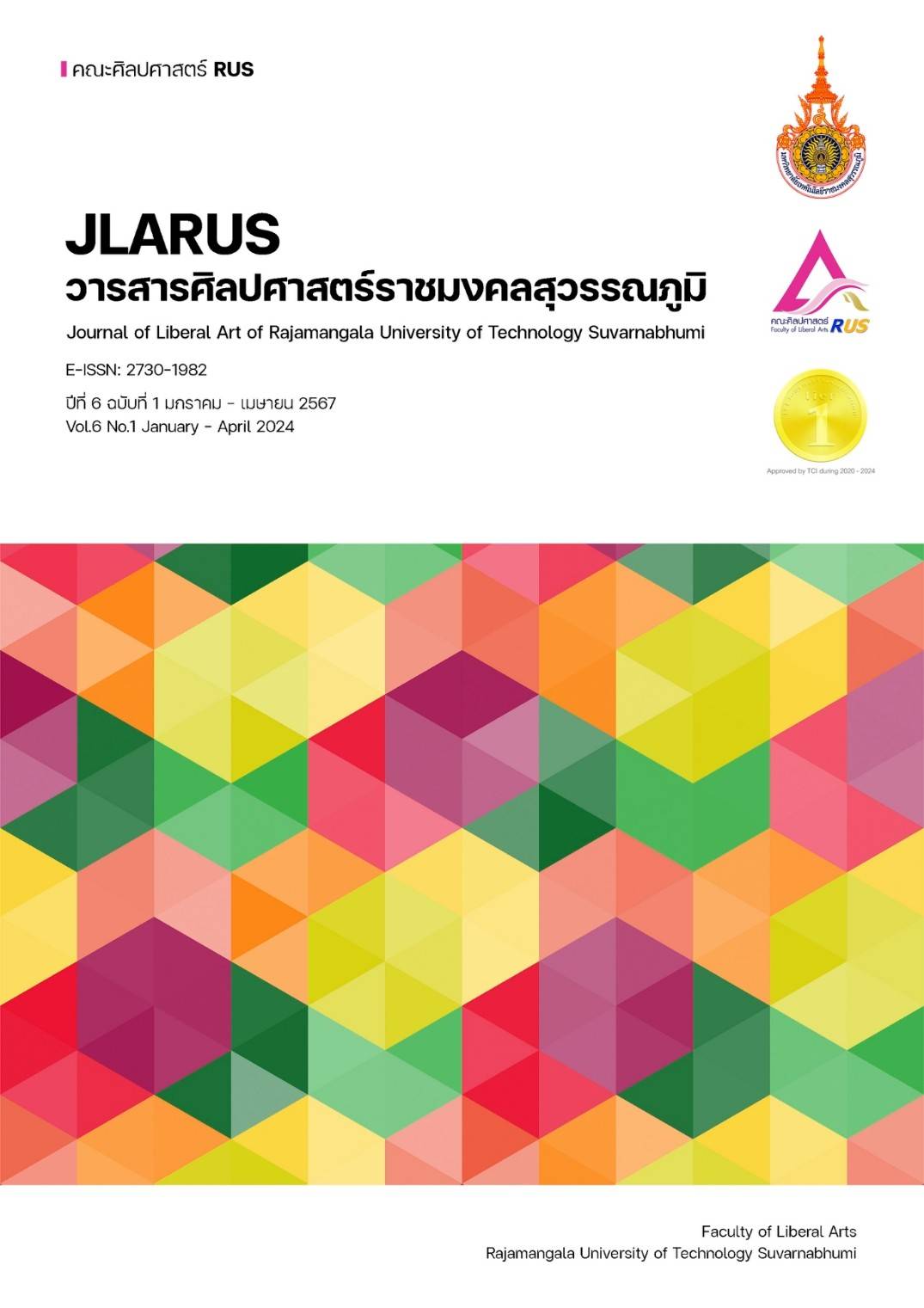ACCEPTANCE OF DIGITAL TECHNOLOGY FOR CREATIVE COMMUNITY TOURISM BASED ON SUSTAINABLE AGRICULTURE
Main Article Content
Abstract
The purposes of the research were: 1) to assess digital technology transfer for tourism by creative communities based on sustainable agriculture, and 2) to promote the acceptance of digital technology for creative community tourism based on sustainable agriculture from stakeholders. This research targeted a specific group. In terms of technology transfer, there were 44 people, while the number of technology evaluators to promote acceptance comprised 65 people. The experimental population and data collection included a group of community representatives living in the community, government officials involved in the development of digital technology, and entrepreneurs involved in community tourism. Statistics used as an evaluation tool included mean and standard deviation. The research results found that 1) digital technology transfer for tourism by creative communities based on sustainable agriculture was at the highest level, with satisfaction arranged from the highest to lowest according to 3 evaluation areas, including the characteristics of the broadcaster in terms of applying knowledge and the transmission process. Further, 2) the results of the evaluation for digital technology acceptance to promote tourism with digital technology by creative communities based on sustainable agriculture involved 5 stages as follows: Knowledge stage, which had overall analysis results at the highest level, Persuasion stage, which had overall analysis results at the highest level, Decision stage, which had overall analysis results at the highest level, Trial stage, which had analysis results at the highest level, and Confirmation stage, which had overall analysis results at the highest level. Thus, all analysis results were found to be at the highest level.
Article Details

This work is licensed under a Creative Commons Attribution-NonCommercial-NoDerivatives 4.0 International License.
References
กรุงเทพธุรกิจ. (2564). โควิด-19 ฉุดนักท่องเที่ยวโลกปี 63 หดตัว 74%. สืบค้น 27 กุมภาพันธ์ 2565. จาก https://www.bangkokbiznews.com/news/detail/.
ครรชิต มาระโภชน์ และทักษินาฏ สมบูรณ์. (2563). การพัฒนาเส้นทางการท่องเที่ยวเชิงเกษตรเพื่อส่งเสริมการท่องเที่ยวในพื้นที่อำเภอพนมสารคาม จังหวัดฉะเชิงเทรา. วารสารสหวิทยาการสังคมศาสตร์และการสื่อสาร มหาวิทยาลัยราชภัฐรำไพพรรณี, 11(2), 210-223.
จิระวัฒน์ อนุวิชชานนท์ และคณะ. (2566). บทบาทของแบบจำลองการยอมรับเทคโนโลยี (TAM) ต่อการท่องเที่ยวในกลุ่มจังหวัดภาคตะวันออก. Rmutt Global Business and Economics Review, 18(1), 39-56.
ธีระ ราชาพล และคณะ. (2564). การศึกษานวัตกรรมการสื่อสารการท่องเที่ยวเชิงวิถีวัฒนธรรม: ตลาดหน้าพระธาตุเมืองคอน. วารสารนิเทศศาสตร์ปริทัศน์, 25(1), 141-149.
บริสุทธิ์ แสนคำ. (2564). พฤติกรรมการท่องเที่ยวของนักท่องเที่ยวชาวไทยหลังสถานการณ์โควิด-19. วารสารศิลปศาสตร์และอุตสาหกรรมบริการ, 4(1), 160-167.
ปริวรรต สมนึก. (2561). การพัฒนารูปแบบเครือข่ายการจัดการท่องเที่ยวโดยชุมชนระหว่างชุมชน บ้านทรายมูลและชุมชนบ้านโพธิ์ศรี อำเภอพิบูลมังสาหาร จังหวัดอุบลราชธานี. วารสารศิลปศาสตร์ มหาวิทยาลัยอุบลราชธานี, 14(1), 70-112.
ศูนย์วิเคราะห์เศรษฐกิจ ทีทีบี. (2566). ttb analytics คาดรายได้การท่องเที่ยวไทยปี 2566 เพิ่มขึ้น 1 ล้านล้านบาทจากปีก่อน พุ่งแตะระดับ 2.25 ล้านล้านบาท. สืบค้น 20 กุมภาพันธ์ 2566. จาก https://www.ttbbank.com/en/analytics/business-industry/tourism-health care/20230112-ttb-analytics-thai-tourism-outlook2023.
ศูนย์เทคโนโลยีอิเล็กทรอนิกส์และคอมพิวเตอร์แห่งชาติ. (2563). การถ่ายทอดเทคโนโลยี. สืบค้น 10 มกราคม 2565. จาก https://www.nectec.or.th/tag/innovation/innovation-service/1.
สาลินันท์ บุญมี และคณะ. (2566). รูปแบบการจัดการท่องเที่ยวโดยชุมชนเชิงสร้างสรรค์บนฐานการเกษตรแบบยั่งยืนด้วยเทคโนโลยีดิจิทัลในชุมชนทับน้ำ-บ้านม้าอำเภอบางปะหัน จังหวัดพระนครศรีอยุธยา. วารสารศิลปศาสตร์ราชมงคลสุวรรณภูมิ, 5(1), 1-14.
องค์การบริหารส่วนตำบลทับน้ำ. (2565). แผนพัฒนาท้องถิ่น (พ.ศ.2561-พ.ศ. 2565). สืบค้น 27 กุมภาพันธ์ 2565. จาก https://tubnum.go.th/public/default/index/index.
เอกพงศ์ มุสิกะเจริญ. (2565). กระบวนการถ่ายทอดเทคโนโลยี. สืบค้น 22 กุมภาพันธ์ 2565. จาก https://www.gotoknow.org/posts/493971.
Roger, Everett M. (2003). Diffusion of Innovations. 3rd ed. New York: A Division of Macmillan Publishing.


